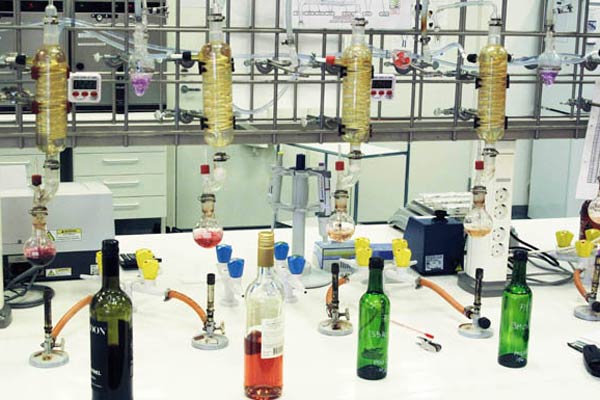Oenologists, alternately called enologists, supervise and manage the stages of wine production. They coordinate with viticulturists to grow and harvest grapes, direct the fermentation process, supervise the aging process and oversee bottling.
 Oenologists can also develop new wines and participate in the administrative side of the winemaking business. An oenologist's primary responsibility is blending different grape varieties together to create a finished wine (www.edd.ca.gov). Generally, an oenologist's first duty in the winemaking process is to decide the appropriate time to harvest grapes. After harvest, they direct the grape crushing process that results in a mixture called must. Oenologists heat the must after adding ingredients, such as yeast, sulfites and sugar, to trigger fermentation. They direct and manage the work of cellar assistants, who operate and maintain the various machines utilized during winemaking. Oenologists supervise laboratory technicians who analyze samples of wine while it ages. Based on a wine's chemical composition, oenologists decide when a wine can be blended and bottled. Additional duties may vary by winery, but can include keeping production records, composing copy for wine bottle labels, developing new vineyards and selling to distributors and customers. Winemakers must have refined senses of taste and smell. Knowledge of grape varieties is also essential. It's possible for an oenologist to learn on the job by working low-level positions and advancing to winemaker over time.
Oenologists can also develop new wines and participate in the administrative side of the winemaking business. An oenologist's primary responsibility is blending different grape varieties together to create a finished wine (www.edd.ca.gov). Generally, an oenologist's first duty in the winemaking process is to decide the appropriate time to harvest grapes. After harvest, they direct the grape crushing process that results in a mixture called must. Oenologists heat the must after adding ingredients, such as yeast, sulfites and sugar, to trigger fermentation. They direct and manage the work of cellar assistants, who operate and maintain the various machines utilized during winemaking. Oenologists supervise laboratory technicians who analyze samples of wine while it ages. Based on a wine's chemical composition, oenologists decide when a wine can be blended and bottled. Additional duties may vary by winery, but can include keeping production records, composing copy for wine bottle labels, developing new vineyards and selling to distributors and customers. Winemakers must have refined senses of taste and smell. Knowledge of grape varieties is also essential. It's possible for an oenologist to learn on the job by working low-level positions and advancing to winemaker over time.
